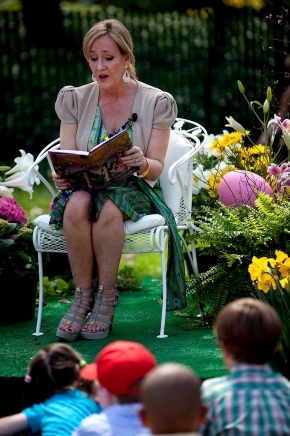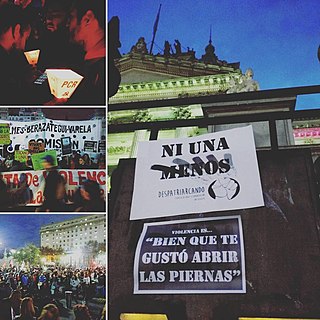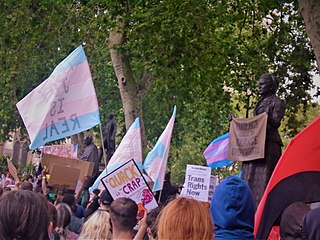Related Research Articles

Transphobia consists of negative attitudes, feelings, or actions towards transgender people or transness in general. Transphobia can include fear, aversion, hatred, violence or anger towards people who do not conform to social gender roles. Transphobia is a type of prejudice and discrimination, similar to racism, sexism, or ableism, and it is closely associated with homophobia. Transgender people of color can experience many different forms of discrimination simultaneously.

The Transgender Day of Remembrance (TDoR), also known as the International Transgender Day of Remembrance, has been observed annually from its inception on November 20 to memorialize those who have been murdered as a result of transphobia. The day was founded to draw attention to the continued violence directed toward transgender people.

Femicide or feminicide is a term for the hate crime of systematically killing women, girls, or females in general because of their sex. In 1976, the feminist author Diana E. H. Russell first implicitly defined the term as a hate killing of females by males but then went on to redefine it as "the killing of females by males because they are female" in later years. Femicide can be perpetrated by either gender but is more often committed by men. This is most likely due to unequal power between men and women as well as harmful gender roles, stereotypes, or social norms.
Gendercide is the systematic killing of members of a specific gender. The term is related to the general concepts of assault and murder against victims due to their gender, with violence against men and women being problems dealt with by human rights efforts. Gendercide shares similarities with the term 'genocide' in inflicting mass murders; however, gendercide targets solely one gender, being men or women. Politico-military frameworks have historically inflicted militant-governed divisions between femicide and androcide; gender-selective policies increase violence on gendered populations due to their socioeconomic significance. Certain cultural and religious sentiments have also contributed to multiple instances of gendercide across the globe.

Julie Bindel is an English radical feminist writer. She is also co-founder of the law reform group Justice for Women, which has aimed to help women who have been prosecuted for assaulting or killing violent male partners.
Feminist views on transgender topics vary widely.

TERF is an acronym for trans-exclusionary radical feminist. First recorded in 2008, the term TERF was originally used to distinguish transgender-inclusive feminists from a group of radical feminists and social conservatives who reject the position that trans women are women, including trans women in women's spaces, and transgender rights legislation. Trans-inclusive feminists assert that these ideas and positions are transphobic and discriminatory towards transgender people. The use of the term TERF has since broadened to include reference to people with trans-exclusionary views who are not necessarily involved with radical feminism.

British author J. K. Rowling, writer of Harry Potter and other Wizarding World works, has garnered attention for her support of the Labour Party under Gordon Brown and her criticism of the party under Jeremy Corbyn, as well as her opposition to the Republican Party under Donald Trump. She opposed Scottish independence in a 2014 referendum and Brexit during the 2016 referendum to leave the European Union.
Violence against women in Mexico includes different forms of gender-based violence. It may consist of emotional, physical, sexual, and/or mental abuse. The United Nations (UN) has rated Mexico as one of the most violent countries for women in the world. According to the National Institute of Statistics and Geography in Mexico (INEGI), 66.1 percent of all women ages 15 and older have experienced some kind of violence in their lives. Forty-nine percent have suffered from emotional violence; 29 percent have suffered from emotional-patrimonial violence or discrimination; 34 percent from physical violence; and 41.3 percent of women have suffered from sexual violence. Of the women who were assaulted in some form from 2015 to 2018, 93.7 percent of them did not seek help or report their attacks to authorities.

Ni una menos is a Latin American fourth-wave grassroots feminist movement, which started in Argentina and has spread across several Latin American countries, that campaigns against gender-based violence. This mass mobilization comes as a response to various systemic issues that proliferate violence against women. In its official website, Ni una menos defines itself as a "collective scream against machista violence." The campaign was started by a collective of Argentine female artists, journalists and academics, and has grown into "a continental alliance of feminist forces". Social media was an essential factor in the propagation of the Ni Una Menos movement to other countries and regions. The movement regularly holds protests against femicides, but has also touched on topics such as gender roles, sexual harassment, gender pay gap, sexual objectification, legality of abortion, sex workers' rights and transgender rights.

Transgender rights in the United Kingdom have varied significantly over time, with the British transgender community facing ongoing challenges not experienced by cisgender (cis) Britons. These include various laws and public attitudes in regards to identity documents, as well as anti-discrimination measures used by or pertaining to transgender people, in the areas of employment, education, housing and social services, amongst others.

Rosemary Clare Duffield is a British Labour Party politician who has served as Member of Parliament (MP) for Canterbury since 2017.
The term womxn is an alternative spelling of the English word woman. Womxn, along with the term womyn, has been found in writing since the 1970s to avoid perceived sexism in the standard spelling, which contains the word man.

Harriet Katherine Wistrich is an English solicitor and radical feminist who specialises in human-rights cases, particularly cases involving women who have been sexually assaulted or who have killed their violent partners. She works for Birnberg Pierce & Partners in London. She was Liberty's Human Rights Lawyer of the Year in 2014.

Magdalen Berns was a British YouTuber, boxer, and software developer. Berns, a lesbian radical feminist, produced a series of YouTube vlogs in the late 2010s focusing on topics such as women's rights and gender identity. Berns's vlogs attracted attention from transgender rights activists, some of whom characterized her as being transphobic and a TERF. Berns co-founded the non-profit organisation For Women Scotland, which campaigns against possible changes to the Gender Recognition Act 2004, among other things.
The LGB Alliance is a British nonprofit advocacy group founded in 2019, in opposition to the policies of LGBT rights charity Stonewall on transgender issues. Its founders are Bev Jackson, Kate Harris, Allison Bailey, Malcolm Clark and Ann Sinnott. The organization has said that lesbians are facing "extinction" because of the "disproportionate" focus on transgender identities in schools.

The Labour Campaign for Trans Rights (LCTR) is a British pressure group within the Labour Party, founded in February 2020.

Woman's Place UK (WPUK) is a British political advocacy group founded in 2017. The group is opposed to gender self-identification for transgender people in the UK, and has advocated restricting access to women-only spaces on the basis of "sex, not gender".

An antimonumenta was installed in front of the Palace of Fine Arts, in Mexico City on 8 March 2019, the date commemorating International Women's Day, during the annual march of women protesting against gender violence.

FiLiA is a British gender-critical feminist charity founded in 2015 that describes itself as part of the women's liberation movement. FiLiA organizes a conference, held first in 2008 as Feminism in London, in different cities, which it now describes as the "largest annual grassroots feminist conference in Europe". FiLiA is gender-critical, and states that it supports "sex-based rights." It has lobbied against gender recognition reform and considers gender self-identification a threat to "women's protected rights." Critics describe it as anti-transgender and transphobic. FiLiA is critical of the sex industry and considers pornography harmful. It has campaigned on behalf of women internationally, including in Iran, Cyprus, and Kenya. It has been described as one of "the most important 'gender critical' groups" alongside Women's Declaration International.
References
- ↑ "Karen Ingala Smith". The Guardian. Retrieved 3 October 2021.
- ↑ "TRUSTEES AND SENIOR MANAGEMENT TEAM". nia. 15 February 2020. Retrieved 3 October 2021.
Karen Ingala Smith has been Chief Executive of nia since 2009. Under Karen's leadership, nia has maintained an unapologetic feminist commitment to prioritising women who have been subjected to men's sexual and domestic violence and abuse, including prostitution. During an unfavourable economic climate, Karen has not only ensured nia's survival but built upon its reputation for responding to the needs of the women and children it serves.
- ↑ University, Durham. "karen-ingala-smith". www.durham.ac.uk. Retrieved 3 October 2021.
- ↑ "Karen INGALA SMITH personal appointments - Find and update company information - GOV.UK". find-and-update.company-information.service.gov.uk. Retrieved 3 October 2021.
- ↑ "Trans allies pull out of University of Oxford feminist conference over ties with 'clearly transphobic' Woman's Place UK". Pink News . 3 March 2020. Retrieved 28 November 2021.
- ↑ Weaver, Matthew (13 February 2020). "Labour leadership contenders split over trans group pledge card". The Guardian. Retrieved 3 June 2021.
- ↑ "Why I was rejected for Labour Party membership and my response". 27 June 2020. Retrieved 28 November 2021.
- ↑ Smith, Karen Ingala. "Why I have spent a decade counting murdered women". The Times . ISSN 0140-0460 . Retrieved 3 October 2021.
- ↑ "Karen Ingala Smith". The Independent. Retrieved 3 October 2021.
- ↑ "Karen Ingala Smith | HuffPost". www.huffingtonpost.co.uk. Retrieved 3 October 2021.
- ↑ "16 Days: Counting dead women". Women's Aid. 7 December 2015. Retrieved 3 October 2021.
- 1 2 "Femicide Census" (PDF). OHCHR.
- ↑ "Femicide Census – Profiles of women killed by men" . Retrieved 3 October 2021.
- ↑ Smith, Karen Ingala (2018), "Femicide", The Routledge Handbook of Gender and Violence, Routledge, pp. 158–170, doi:10.4324/9781315612997-13, ISBN 978-1-315-61299-7 , retrieved 3 October 2021
- ↑ "Femicide census is published which collates data on perpetrator and victims of killing in the UK – ADVANCE programme – substance use and IPV" . Retrieved 3 October 2021.
- ↑ "'Shocking' toll of women killed by men renews call for safe spaces". The Guardian. 10 December 2017. Retrieved 3 October 2021.
- ↑ "The Femicide Census: 2016 findings. Annual report on cases of femicide in 2016" (PDF). 1q7dqy2unor827bqjls0c4rn-wpengine.netdna-ssl.com. 1 December 2017. Retrieved 3 October 2021.
- ↑ Al-Othman, Hannah; Agnew, Megan (29 January 2022). "The army's shameful secret: domestic abusers are still in uniform". The Sunday Times . Retrieved 30 January 2022.
- ↑ "Emma Humphreys Memorial Prize". Emma Humphreys Memorial Prize. Retrieved 3 October 2021.
- ↑ "2014 Winners". National Diversity Awards. Retrieved 3 October 2021.
- ↑ "Karen INGALA SMITH personal appointments - Find and update company information - GOV.UK".
- ↑ "Why some women don't back 'self-identifying'". BBC News. 20 October 2018. Retrieved 3 June 2021– via YouTube.
- ↑ "Too good for Labour: Karen Ingala Smith". 27 March 2020.
- ↑ "Femicide: Women are most likely to be killed by their partner or ex". BBC News. 20 February 2020. Retrieved 3 October 2021.
- ↑ "Details of Sarah Everard case heighten women's sense of despair". The Guardian. 30 September 2021. Retrieved 3 October 2021.
- ↑ "Defending Women's Spaces | polity". politybooks.com. Retrieved 8 December 2022.